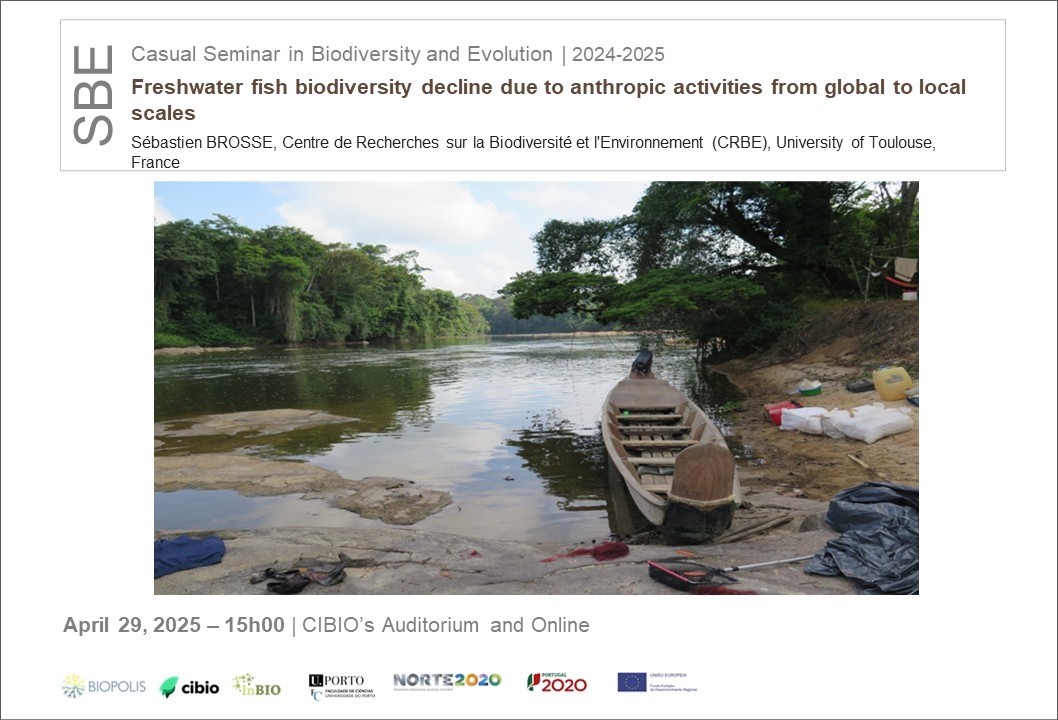Freshwater fish biodiversity decline due to anthropic activities from global to local scales
29 Apr 2025 - Sébastien BROSSE, Centre de Recherches sur la Biodiversité et l'Environnement (CRBE), University of Toulouse, France | 15h00 | Hybrid Seminar

CASUAL SEMINAR IN BIODIVERSITY AND EVOLUTION
Freshwater fish represent one-fourth of the world’s vertebrates and provide irreplaceable goods and services but are increasingly affected by human activities. Here I will present how anthropic disturbances changed fish biodiversity across the globe considering taxonomic, functional and phylogenetic dimensions of biodiversity. I will show that most rivers of the globe experienced drastic biodiversity changes during the two last centuries, leading to an overall increase of biodiversity but a decline in distinctiveness between rivers. I will then focus on the rivers from the Guiana shield (Northern Amazonia), one of the least impacted tropical ecosystems on earth, to show how environmental metabarcoding techniques allowed to inventory local fish and mammal faunas. Those inventories were used to link slight and scattered deforestation to local drops of biodiversity, and to regional changes in turnover in species and functions, indicating that those apparently little impacted ecosystems are currently under threat.
Sébastien Brosse is a full professor at the University of Toulouse, France. He is the head of the Aquatic Ecology and Global Change research team in the Research Center for Biodiversity and Environment (CRBE). He is a freshwater ecologist working for more than 20 years on the biodiversity of fishes. He is interested on biodiversity (mainly fish) responses to human disturbances. He leaded the development of global scale databases on fish taxonomic and functional diversity and investigated how human activities modified fish assemblages throughout the globe. He is also leading field studies investigating community assembly mechanisms under anthropic disturbances in Northern Amazonia (French Guiana), and contributed to the development of environmental DNA methods to inventory wildlife.
[Host: Manuel Lopes Lima, FRESHwater COnservation, Diversity and Evolution - FRESHCODE]